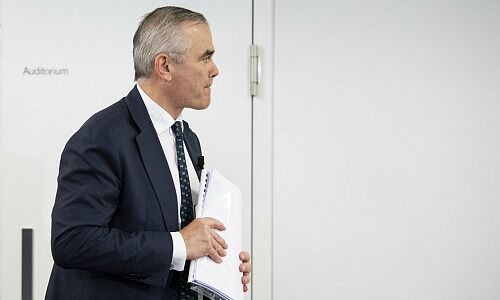Credit Suisse CEO Wants Wealth Boost
The Swiss wealth manager has always wanted to be a bank for entrepreneurs – and new CEO Thomas Gottstein is about to put far more emphasis on winning more cross-divisional business.
If the Swiss-based bank was absorbed with itself in recent months – a messy surveillance scandal, a change of CEO, the pandemic and a government-backstopped emergency lending bazooka, spending cuts in Switzerland – it seems to be slowly returning to more regular issues. New CEO Thomas Gottstein indicated he wants to reinforce Credit Suisse's four-year-old «bank for entrepreneurs» push.
The idea of cross-selling investment banking services to wealthy business-owners, alongside more traditional wealth management ideas, works well in Switzerland as well as in Asia, Gottstein, who took the helm in February, noted at a conference this week. By contrast, «what we haven't managed to do very well in the last five years is cooperate between private banking and investment banking.
Wealth To Step Up
A long-standing investment banker, Gottstein noted that «when I schedule an hour with an entrepreneur, we spend the first 45 minutes talking about his business, financing, and mergers and acquisitions.»
«A normal business-owner has 90 percent of their money in their company and just ten percent in bankable assets,» Gottstein said. It is here that he wants Credit Suisse's main wealth unit, led by Philipp Wehle, to step up. Ex-CEO Tidjane Thiam launched the so-called E&E push – for entrepreneurs and executives – in 2016.
Competitive Hiring
Credit Suisse hired copiously for the push, which is also being hotly pursued by other Swiss banks. But last year, more than 90 private bankers were dispensed back to their respective regional units in Switzerland after head Andreas Arni defected to a high-profile job at Lombard Odier.
The platform is a natural one for Gottstein to adopt: he was formerly one of Credit Suisse's go-to investment bankers in Switzerland until 2014. Then, the bank moved him into a private banking job for premium clients in Switzerland (the super-rich) as well as independent asset managers before he took over its domestic bank in 2015.
Reporting by Katharina Bart and Samuel Gerber




























